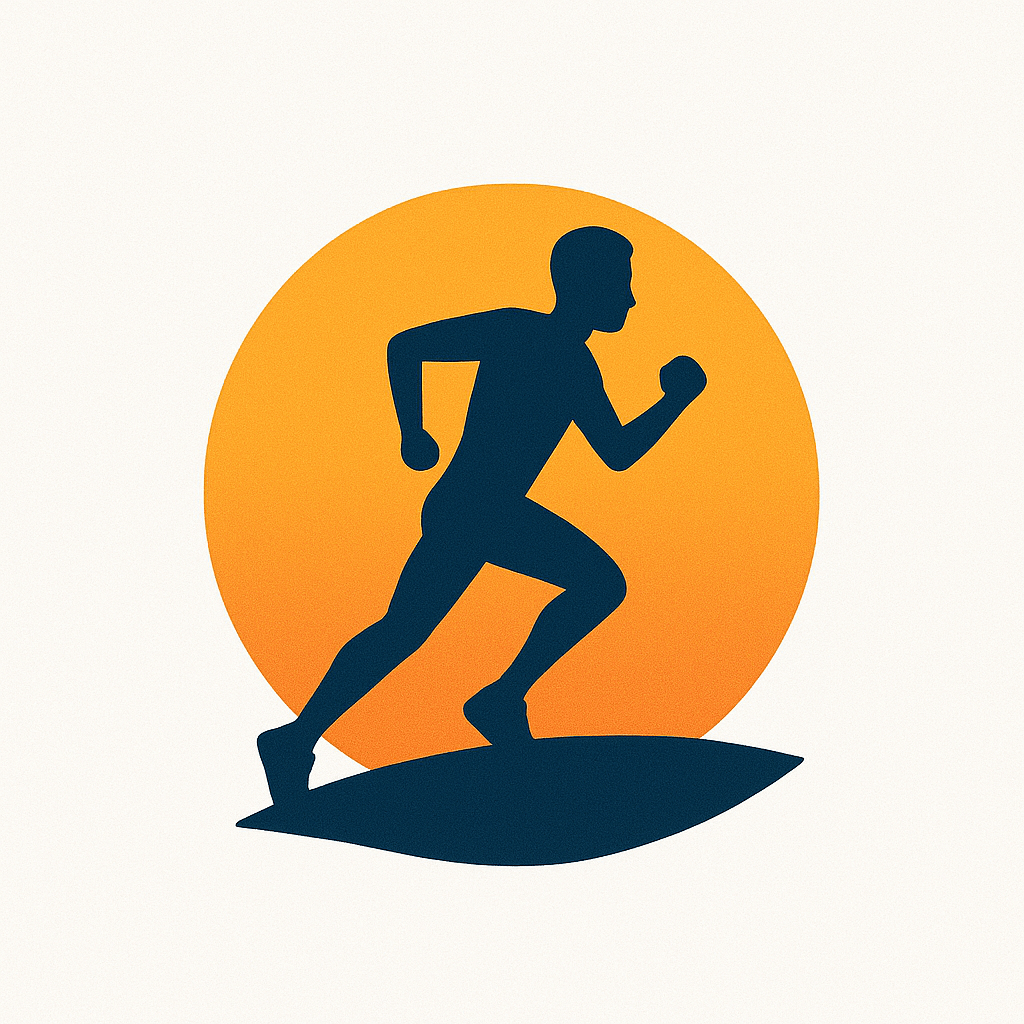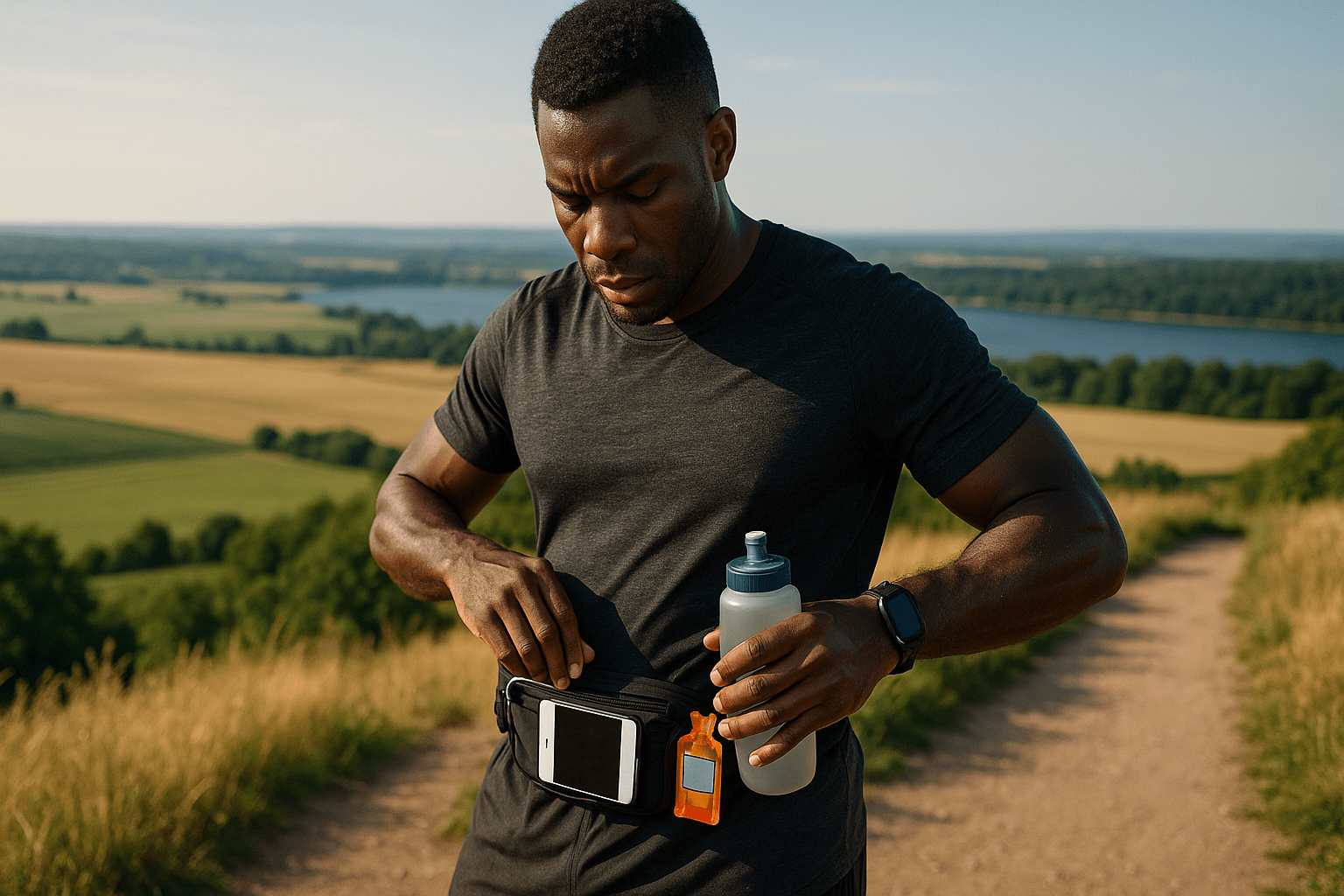The Short Run That Taught You Everything
You thought it’d be a quick out-and-back. Just a few easy miles to shake off the day. No gear, no hassle—just you, your shoes, and the road.
But halfway through, the skies opened up. Your phone was at home. A minor ankle twist left you limping, 1.5 miles from help. And suddenly, that “bare minimum” run didn’t feel so simple.
We’ve all been there. And while running light feels freeing, being unprepared can turn a short jog into a long problem. That’s why even your shortest runs deserve a few small essentials—items that can make the difference between a quick comeback and a real emergency.
Why Less Isn’t Always More
The Myth of the “Bare Minimum” Run
It’s easy to think: It’s only 30 minutes—I’ll be fine. But here’s what can go wrong even on short runs:
- A twisted ankle
- Sudden dehydration in the heat
- Unexpected downpours
- Getting lost on a new route
- Feeling faint or dizzy mid-stride
Short runs don’t make you immune from the unexpected. They just catch you off guard faster.
Safety, Comfort, and Performance Benefits
Carrying a few key items doesn’t weigh you down—it lifts you up.
- You run with more confidence
- You can respond to the unexpected
- You train smarter, not harder
Let’s dig into the five things every runner should carry—even when you’re just heading out for a few miles.
1. ID or Emergency Info (Because Safety First)
If something happens, will someone know who you are or how to help?
Always carry:
- A Road ID bracelet or shoe tag
- A card in your pocket with emergency contacts
- Use smartphone emergency ID apps (like Apple’s Medical ID or Android’s emergency info)
This one’s non-negotiable. If you pass out or are injured, this tiny step speaks for you when you can’t.
2. Your Phone (Lifeline, Tracker, Map, and More)
It’s not just for selfies or Strava.
Why you need it:
- Emergency calls or texts
- GPS and maps if you’re lost
- Route tracking for mileage and safety
- Weather alerts mid-run
- Podcasts or music for motivation
Use an armband, waist belt, or compression pocket shorts to stash it. It’s the single most versatile tool you have.
3. Hydration (Yes, Even on Short Runs in Heat)
Even a 20-minute run in summer heat can sap your fluids fast.
Options:
- Handheld bottles (great for 2–6 mile runs)
- Collapsible flasks that tuck into pockets
- Planning routes past water fountains
Dehydration doesn’t care how far you run. Stay ahead of it—even on easy days.
4. Fuel or Electrolytes (When to Bring a Little Boost)
You don’t always need a gel for a 3-miler. But sometimes? You’ll be glad you brought one.
Bring fuel if:
- It’s humid or hot
- You’re doing intervals
- The terrain is hilly or technical
- You haven’t eaten enough
Options:
- Energy chews or half a gel
- Electrolyte tablets or drink mixes in your bottle
- Salt pills if you’re prone to cramping
Better to have and not need than the other way around.
5. A Small First-Aid or Chafing Fix
Chafing can start in mile one. A blister from yesterday’s shoes might pop up. One tissue can be a lifesaver.
Keep on hand:
- A mini anti-chafe stick (BodyGlide, Squirrel’s Nut Butter)
- A Band-Aid or blister patch
- A small tissue or wet wipe
- A $5–$10 emergency cash bill for water, a cab, or coffee
These tiny items take up barely any space—and often save the day.
Bonus Items Worth Considering
Pepper Spray, Whistle, or Personal Alarm
If you run early, late, or alone, personal safety is paramount.
Look into:
- Small pepper sprays that clip to your belt
- Personal alarms with loud sirens
- Whistles on keyrings or zippers
Peace of mind is powerful—and may save your life.
Lightweight Layers or Rain Protection
The forecast lies. Always.
Smart add-ons:
- Packable rain jackets (super light, ultra useful)
- Emergency space blankets (especially for races)
- Foldable sun hats or sleeves for heat
Even on short runs, small protection can mean major comfort.
Be the Runner Who’s Always Ready
The best runs feel free and light—but the smartest runs are backed by quiet confidence. Knowing you have what you need, even for the shortest outing, changes the way you move.
It doesn’t mean carrying a backpack for three miles. It means building a small, reliable system—so you’re never caught off guard again.
So fill that belt pocket. Slip your phone into its slot. Grab that soft flask and ID. And run smarter, safer, stronger.
Because even short runs deserve to be treated with respect.






Leave a Reply